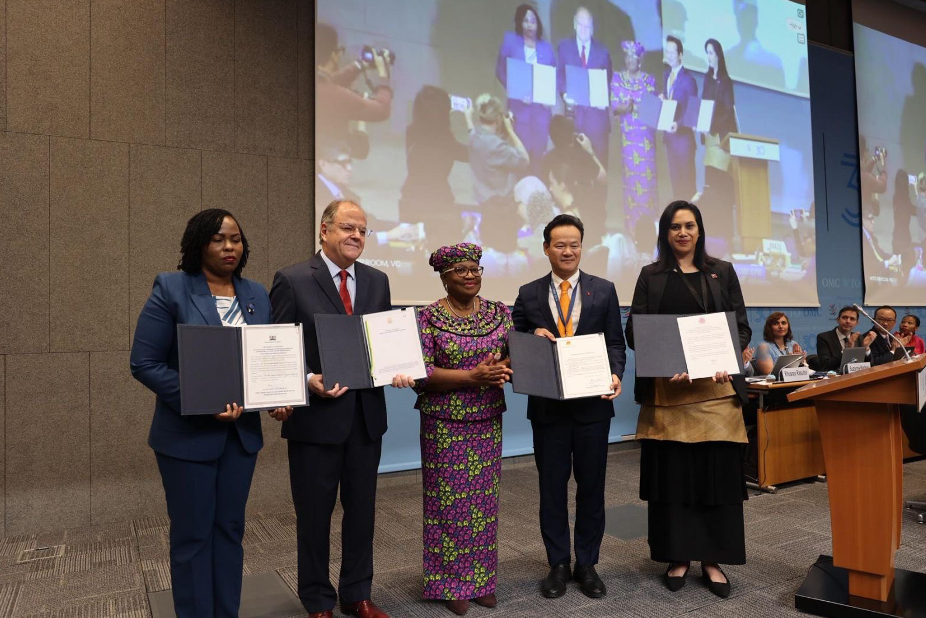On September 15, Vietnam officially deposited its Instrument of Acceptance of the WTO Agreement on Fisheries Subsidies (Fish 1) at the World Trade Organization (WTO) headquarters in Geneva, Switzerland.
This decisive move brought the total number of ratifying members to 111, meeting the threshold required for the Agreement to enter into force globally. Viet Nam proudly joins Brazil, Kenya, and Tonga as one of the final four members whose ratifications collectively “activated” this landmark global accord.
At a special session of the WTO General Council, Ambassador Mai Phan Dung, Permanent Representative of Viet Nam to the WTO, formally submitted the instrument on behalf of the Government of Viet Nam. The event not only enhances Vietnam’s credibility and standing as a reliable and responsible partner in the international community but also demonstrates the country’s strong commitment to the global fight against illegal, unreported, and unregulated (IUU) fishing - a critical issue for Vietnam’s seafood export markets.
 Ambassador Mai Phan Dung, Permanent Representative of Viet Nam to the WTO in Geneva, submits Vietnam’s Instrument of Acceptance.
Ambassador Mai Phan Dung, Permanent Representative of Viet Nam to the WTO in Geneva, submits Vietnam’s Instrument of Acceptance.Adopted at the 12th WTO Ministerial Conference (MC12) in Geneva in 2022 after more than 20 years of negotiations, the Fisheries Subsidies Agreement is the first multilateral trade agreement in WTO history that directly focuses on environmental protection and sustainable fisheries development. The Agreement establishes binding rules to prohibit subsidies for IUU fishing, and to curb subsidies that contribute to the depletion of overfished stocks or support fishing in unregulated high seas areas.
By eliminating billions of dollars in harmful subsidies each year, the Agreement aims to restore marine ecosystems, safeguard fish stocks, and prevent the further exhaustion of ocean resources-a vital step toward achieving sustainable ocean governance.
For Vietnam, ratification of the Agreement reaffirms its steadfast commitment to a rules-based, fair, and sustainable international trading system, while also delivering tangible domestic benefits. The Agreement will serve as a major driver for restructuring the fisheries sector toward a modern, sustainable, and science-based industry. Phasing out harmful subsidies will encourage investment in advanced fishing technologies, reduce post-harvest losses, enhance management capacity, and help meet the sustainability requirements of key export markets.
In the long term, a healthy ocean will provide the most secure foundation for the livelihoods of approximately 1.45 million Vietnamese marine fishers and coastal communities, contributing directly to the country’s blue economy development goals.
By bringing the WTO Fisheries Subsidies Agreement into force, Vietnam not only fulfills its international commitments but also actively helps shape a future in which trade and sustainability go hand in hand - for a blue ocean, the shared heritage of all humankind.